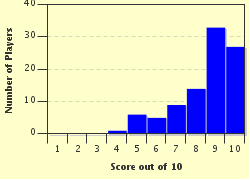Quiz Answer Key and Fun Facts
1. Lunch starts with some kolokithokeftedes, delicious fried zucchini balls. Hermes begins the conversation saying he prefers zucchini over fried potatoes, which seem to be very popular in today's world. He says "I'm not a fan of hash browns or french fries or latkes, and I certainly don't like churros!" Something's odd here, because churros don't have any potatoes, right? Would you normally find fried potato in a churro?
2. Hermes orders your next Greek treat: dolmadakia. He explains that this is a dish made of rice and herbs stuffed into grape leaves. "While we're talking about grapes," he says, "did you know that the plant's scientific name is Vitis vinifera?" Apparently Hermes knows science! Is his statement true or false?
3. "Oh I know that one!", you exclaim as you see the next Greek dish coming your way. "That's spanakopita!" Hermes nods and adds: "I'm trying to gain some muscle, and I saw this funny sailor on TV the other day eating spinach and getting stronger. So this spinach pie was the perfect choice!" "Oh, was his name Popeye?", you ask. What does Hermes answer you?
4. Next up is a simple but delicious Hellenic salad, a mixture of cucumbers, feta cheese, tomatoes, olives, onions and olive oil. Hermes says: "did you know this salad originally came from Switzerland? 'Hellas' is actually another name for the Swiss Confederation!" Is he right?
5. "You'll love this next dish," Hermes tells you. "Gyros consists of a pita bread filled with meat and tzatziki sauce. Trust me, it's incredible. I also love it because its name reminds me of this great French tennis player, Olivier Giroud." Is Hermes's memory working well? Is his statement that Frenchman Olivier Giroud is a tennis player true or false?
6. You begin to fill up, but Hermes says you're only halfway through! "You better make some space for the moussaka I just ordered!" says Hermes. "Ahh, moussaka, that sound reminds me of that feline Mufasa from a 1994 Disney animated movie. What a powerful tiger he was!" Was the Mufasa that Hermes is talking about in fact a tiger?
7. Pastitsio is the next dish, and you stare at the mass of pasta and beef in front of you. "Think of it as a lasagna, but Greek instead of Italian! Speaking of Italians, did you know that Christopher Columbus was born there?" You ponder on his words for a moment, because you know Columbus and his trips were sponsored by Spain. Is Hermes's statement about Columbus true or false?
8. As Hermes asks the waiter to bring more tzatziki, you can't help noticing he is humming one of your favorite songs. "Hermes, is that..." He interrupts and says: "Yes! "Dust in the Wind! I love that song by Deep Purple." Has Hermes remembered the band correctly?
9. "Finally, it's time for dessert!", you exclaim, excited to know that this meal is almost over. The waiter serves you baklava, a pastry containing nuts and honey. Before you take a bite, Hermes decides to bring some literary knowledge into the conversation. "So what are your preferences in literature? I just loved "The Old Man and the Sea." That Ernest Hemingway knew how to write well!" Is it true or false that Hemingway wrote that book?
10. As Hermes shares with you a plate of amygdalota (almond cookies) and cup of Greek coffee to close this lunch, he says "thank you so much for helping me and my messengers! I am now ready to return home. But don't worry, I'll send you a missive as soon as I get there!" You seem confused, so he clarifies: "a missive is a letter, don't look so surprised! Goodbye!" As you see Hermes depart, you ask yourself: is it true or false that a 'missive' is in fact a letter?
Source: Author
Lpez
This quiz was reviewed by FunTrivia editor
agony before going online.
Any errors found in FunTrivia content are routinely corrected through our feedback system.

